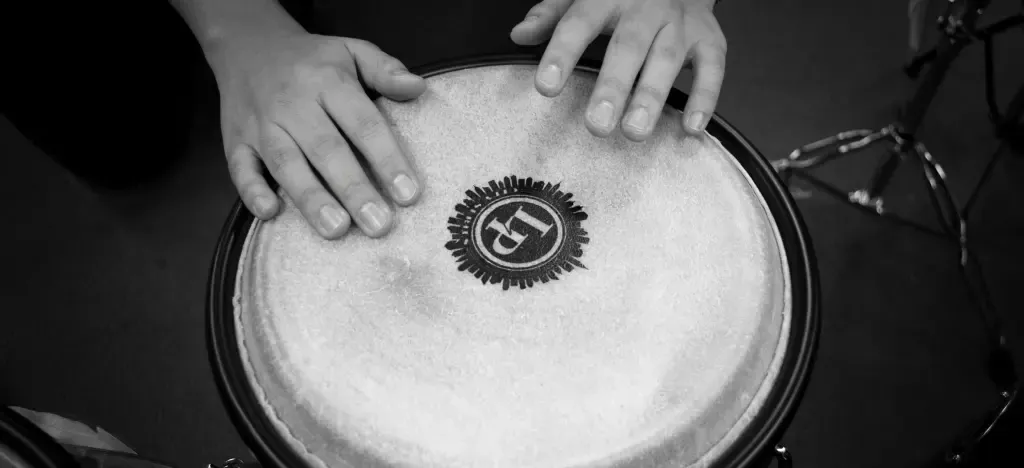“I’d love to play an instrument, but I’m just not musical.”
It’s something I hear all the time — and every time, it stings a bit. Not because it’s offensive, but because it usually comes from someone who’s never really given themselves a proper chance to learn. Or someone who tried once, got frustrated, and decided they simply didn’t have the talent for it.
But here’s the truth: you don’t need talent to play music.
You need time. You need feedback. And above all, you need the belief that becoming musical is something anyone can do — because it is.
- Where the idea of “musical talent” comes from
- Born musical — or can you learn it?
- So what actually makes someone musical?
- Why people struggle to play music (and how to get past it)
- How to become more musical
- Musicality isn’t rare — it’s human
- Explore more about music learning & creativity
- FAQ: Can anyone become musical?
Where the idea of “musical talent” comes from
 It’s easy to believe musical talent is something you’re born with. We’ve all heard the stories: Mozart composing at four, child prodigies on talent shows, Billie Eilish making hits in her teens.
It’s easy to believe musical talent is something you’re born with. We’ve all heard the stories: Mozart composing at four, child prodigies on talent shows, Billie Eilish making hits in her teens.
But those stories leave out the full picture. Mozart had a demanding teacher for a father. Billie Eilish grew up in a musical family — her parents were artists, and she spent years writing and producing music at home with her brother Finneas.
Even at school, many of us were told whether we were “musical” or not based on a quick test. If you didn’t pass, you missed your chance to learn. That label sticks — and later, when you try to learn music as an adult and struggle through a simple song, it’s easy to think, “Maybe I’m just not musical.”
But becoming musical has less to do with talent — and everything to do with time, feedback, and practice.
💡 ARTMASTER TIP: Still unsure if talent matters more than effort? These iconic musicians taught themselves — and rewrote the rules.
Born musical — or can you learn it?
 There’s no doubt that some people seem drawn to music from an early age — and genetics might play a small role in that. Traits like auditory sensitivity or motor coordination can make the early stages feel easier. But when it comes to actually becoming skilled, the science is clear: it’s mostly about what you do, not what you’re born with.
There’s no doubt that some people seem drawn to music from an early age — and genetics might play a small role in that. Traits like auditory sensitivity or motor coordination can make the early stages feel easier. But when it comes to actually becoming skilled, the science is clear: it’s mostly about what you do, not what you’re born with.
Psychologist Glenn Schellenberg has shown that what we call “talent” is often just a mix of early exposure, supportive environments, and consistent practice. Many so-called prodigies started young — and kept going (source).
Anders Ericsson, the researcher behind the theory of deliberate practice, found that top musicians didn’t rely on natural flair. They reached elite levels through years of structured, focused practice — often with expert feedback. In most cases, talent played a surprisingly minor role (source).
So while some people might get a small head start, musical ability is largely built, not inherited. Given time, motivation, and the right kind of guidance, almost anyone can develop the skills we associate with being “musical”.
💡 ARTMASTER TIP: If you’ve ever been told you’re “not musical”, this article looks at how those ideas take hold — and how to shake them off.
 💡 Want to build your musical ability?
💡 Want to build your musical ability?
Meet Artie — the world’s first AI piano teacher that actually listens to your playing and gives real-time feedback to help you improve faster.
Download Artie for free now
So what actually makes someone musical?
 Once you strip away the myth of talent, you’re left with a better question: What does musical ability actually look like?
Once you strip away the myth of talent, you’re left with a better question: What does musical ability actually look like?
It’s not some mystical “gift.” It’s a bunch of learnable skills:
Hearing and feeling rhythm
Recognising pitch and melodic movement
Understanding patterns in harmony and chord progressions
Coordinating your hands, fingers, voice, or breath
Listening actively and responding to sound
These aren’t things you either have or don’t. They’re skills — like riding a bike or learning a language. And they build up gradually, through repetition, feedback, and practice.
The key isn’t if you can become musical. It’s how you go about it — and whether you get the right kind of support as you learn.
💡 ARTMASTER TIP: Wondering how far those musical patterns really go? Our article on patterns in music explores the hidden structure behind melody, rhythm and harmony — and why recognising it can change how you hear and play.
Why people struggle to play music (and how to get past it)
 Most people don’t give up on music because they’re not good enough — they give up because they don’t know what’s going wrong.
Most people don’t give up on music because they’re not good enough — they give up because they don’t know what’s going wrong.
You try to learn a song. Something sounds off. You’re not sure if it’s your rhythm, your fingers, or something else entirely. And without someone (or something) to point it out, it’s easy to get stuck — or lose confidence.
That’s the biggest barrier to becoming musical:
Not knowing what to work on next.
Not knowing if you’re improving.
Not knowing how to fix it when it doesn’t sound right.
That’s where the right support makes all the difference.
Good music courses — especially those designed by real musicians — can give you structure, progression, and inspiration. You learn proven techniques, see them in action, and get to follow a clear path. But even the best videos can’t always spot what you just played, or give feedback tailored to your hands, your habits, your speed.
That’s why more and more people are combining structured courses with tools that offer real-time guidance — feedback that reacts to your playing in the moment, like a personal coach beside you.
This combo — expert instruction plus smart feedback — is what turns practice into real progress.
And it’s more accessible than ever.
💡 ARTMASTER TIP: Want that kind of support? Try out our online music courses for free — taught by Grammy winners and world-class musicians — or join the waitlist for Artie, our AI piano teacher that listens, gives feedback, and helps you improve like a real coach would.
How to become more musical
 Like any skill, there are some simple, proven ways to improve your musicality. Here’s where to start:
Like any skill, there are some simple, proven ways to improve your musicality. Here’s where to start:
1. Start with rhythm
Before you worry about notes or technique, focus on feeling the beat. Clap along to songs. Tap your foot. Try playing simple drum patterns — even on your thighs or a desk. Rhythm is the backbone of musicality.
2. Listen with intent
Stop just hearing music — start listening to it. Notice patterns in chords, melodies, and rhythms. Can you predict what comes next in a song? That instinct comes from exposure and attention.
3. Practise regularly, not perfectly
You don’t need marathon sessions. Ten focused minutes a day beats an hour once a week. Consistency builds muscle memory — and musical awareness.
4. Slow down
Most people rush when they practise. But playing slowly (and correctly) is what actually wires the brain and body to play well. Speed comes naturally later.
5. Get feedback
This is the real game-changer. Whether it’s a teacher, an online course, or an AI tool like Artie, the fastest progress comes when you get guidance on what to fix — and how to fix it.
6. Stick with it
You don’t have to be great to begin — but you do have to begin to get great. Progress comes in weird bursts. Trust the process and keep showing up.
💡 ARTMASTER TIP: Struggling to make practice stick? Learn how to practise in a way that actually leads to progress — not frustration. Read The art of effective music practice.
Musicality isn’t rare — it’s human
 The more you look, the more it becomes obvious: music is everywhere. People sing to babies, chant at football matches, dance in kitchens, hum on walks. It’s built into us — not just as listeners, but as makers.
The more you look, the more it becomes obvious: music is everywhere. People sing to babies, chant at football matches, dance in kitchens, hum on walks. It’s built into us — not just as listeners, but as makers.
So maybe the problem isn’t that some people aren’t musical. Maybe it’s that we’ve made music feel exclusive — something for the gifted few, rather than something we all have a right to explore.
You don’t need to be brilliant. You don’t need to be fast. You just need to be curious enough to start — and stubborn enough to keep going.
Musicality isn’t a rare talent. It’s a normal human skill.
And it’s never too late to find your way back to it.
Explore more about music learning & creativity
FAQ: Can anyone become musical?
Can you learn to be musical later in life?
Absolutely. Adults often make great learners because they’re more motivated and self-aware. While kids may pick things up faster, adults can develop strong musical skills with consistent practice and the right guidance.
Is musical talent something you’re born with or can it be developed?
Most musical skill is developed — not inherited. Some people may start with a slight head start, but practice, feedback, and time are what really shape musical ability.
What’s the best way to start learning music as a beginner?
Start with simple songs and focus on rhythm and coordination. A structured course or a smart tool like Artie (our AI piano teacher) can guide you through step-by-step progress, tailored to your level.
What if I have no rhythm or can’t sing in tune?
That just means you need the right exercises — and maybe a bit of feedback. These are learnable skills, not fixed traits. Most people improve dramatically once they know what to listen for.
How can I tell if I’m improving at music?
Look for small wins: smoother transitions, better timing, or remembering a part without looking. Tools like Artie give real-time feedback so you know exactly what’s working — and what to fix.
Do I need a teacher to learn music, or can I teach myself?
You can absolutely teach yourself, but it’s easier with some structure. Many learners combine high-quality courses with tools like Artie to get both guidance and feedback — a bit like having a teacher in your pocket.
How long does it take to feel “musical”?
You might feel a change after just a few weeks of regular practice. The key is consistency — and enjoying the process. With the right support, most people can play a recognisable song within a month.
About the author
Matt Ford is a musician, teacher, writer, and lifelong student of sound.
With years of experience in both performing and teaching, he shares practical advice through ArtMaster to help musicians at every level build skill and confidence in their playing.



